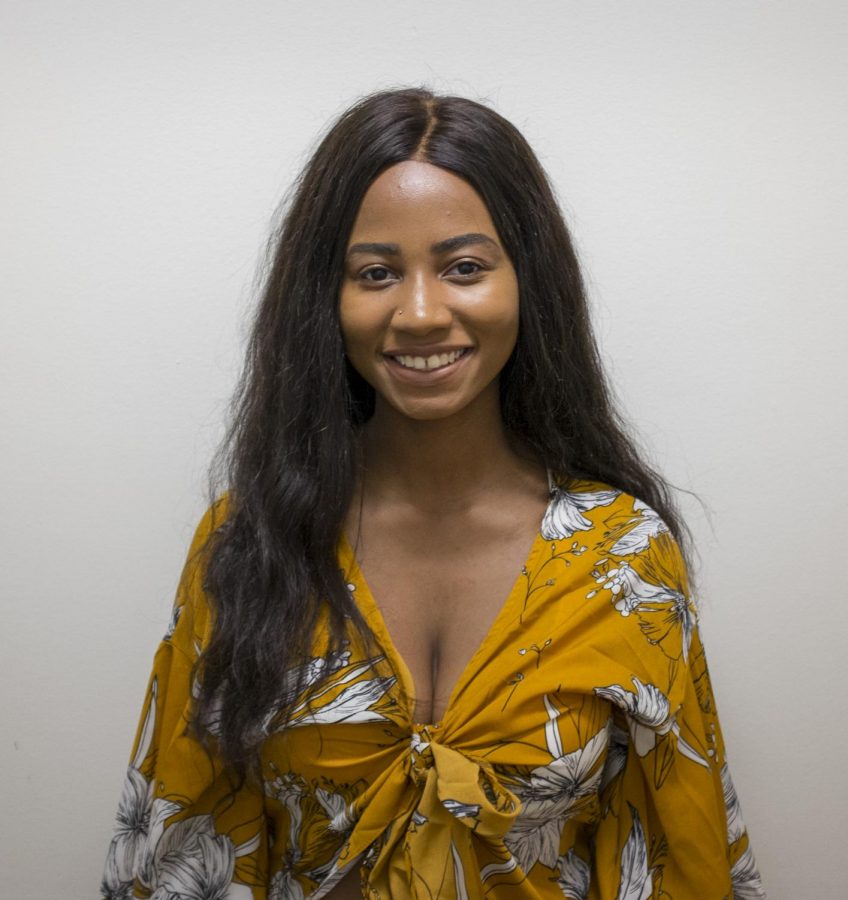Don’t Call Me Your Milk Chocolate Mocha Caramel Queen
September 24, 2018
Women of color are not granted the same degree of respect that white women are in heterosexual encounters. While misogyny is very real and transcends racial lines, the disrespect women of color face is compounded by not only our gender, but our ethnicities. Think about it, can many white people say they’ve ever been referred to as a milky snow queen or rose-lipped porcelain doll by a prospective mate? Probably not, because that would be weird. So why have we normalized this creepy behavior when it comes to people of color? The answer to this dehumanization comes from one prominent source: the media.
In the wake of on-screen romance transitioning from a “Whites Only” affair, light-skinned women of color have been thrown a bone every so often and cast as love interests in movies and TV. This so-called inclusion — like every feeble attempt by networks to promote equality in the entertainment business — has come with a price. While failing the Bechdel test — a pass-fail measure depending on whether a movie has a scene where two named female characters have a conversation about something other than a man — unnecessary undressing scenes and unequal pay, women of color in Hollywood also have to contend with becoming caricatures of their culture for the world’s consumption.
Sofía Vergara is a prime example of this. For years, we’ve watched people project their Latina fantasies onto her as she gained fame through “Modern Family.” While Vergara has used this widespread fetishization to her advantage by exaggerating her accent, dying her naturally blonde hair dark brown to look more ethnic and so on, I’m not going to put the blame on her for trying to get her coin. I’m calling out the environment that makes this hyperbolic, artificial character acting necessary for artists of color to be recognized.
This harmful media representation trickles into everyday life as well. Last year, before I was cold, bitter and closed off to the men at this institution, I was texting this guy. We had met at a frat party and exchanged numbers. We planned to meet up, and while describing his excitement to hang out, he wrote, recorded here verbatim, “lit lol, I’ve never dipped in chocolate before lol.”
In talking to peers, I’ve found that these inappropriate fetishizations often translate to food analogies. A South Asian friend shared that a former partner related having sex with her to “eating curry” on multiple occasions. A Latinx friend described the sinking feeling they get every time someone writes about seeking “rice and beans” in their dating app profile. An East Asian friend recounted how her school had a “yellow fever phase,” where all the white athletes plotted to hook up with Asian girls for the semester.
Having your entire identity stripped down to a trope for the sexual satisfaction of another is humiliating and dejecting, and yet we’re groomed to embrace it. Not only is the media an accomplice in this portrayal, but we’re also taught from an early age that we have to fall within someone’s type for them to see us as worthy of their love. It is not inflammatory to acknowledge the fact that this is a problem white people simply don’t have. They are able to explore their sexuality without worry of ethnic exploitation. We must contend with these inequities and challenge our own inner biases, because once we stop seeing people as people, we stop treating them as such
Identity of Love is a column devoted to exploring the ups and downs of navigating love, sex and relationships for those whose narratives have historically been pushed to the margins. Identity of Love runs alternate Tuesdays.
Cheyenne Porcher is a sophomore in the Gallatin School of Individualized Study. Email Cheyenne at [email protected].
Opinions expressed on the editorial pages are not necessarily those of WSN, and our publication of opinions is not an endorsement of them.
























































































































































